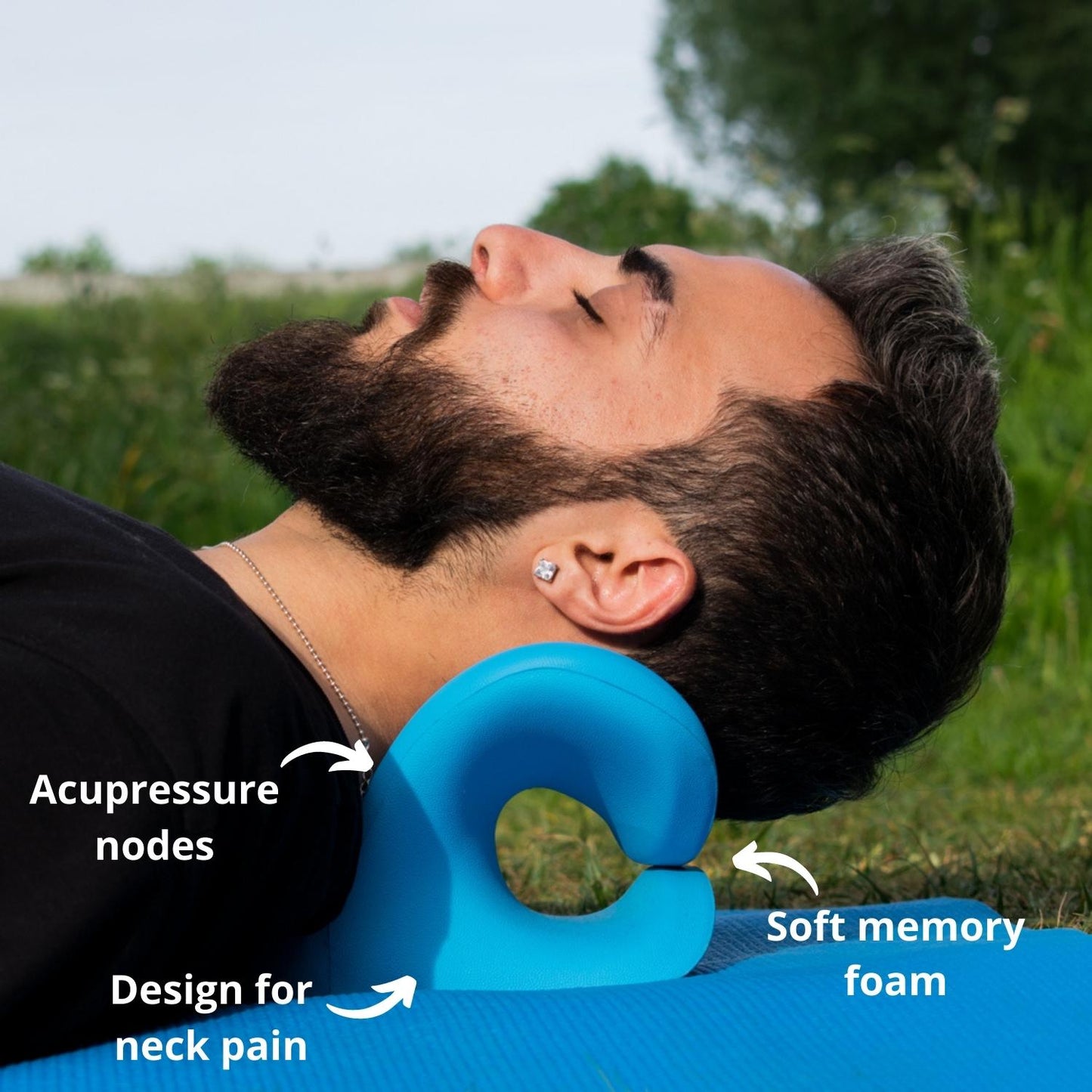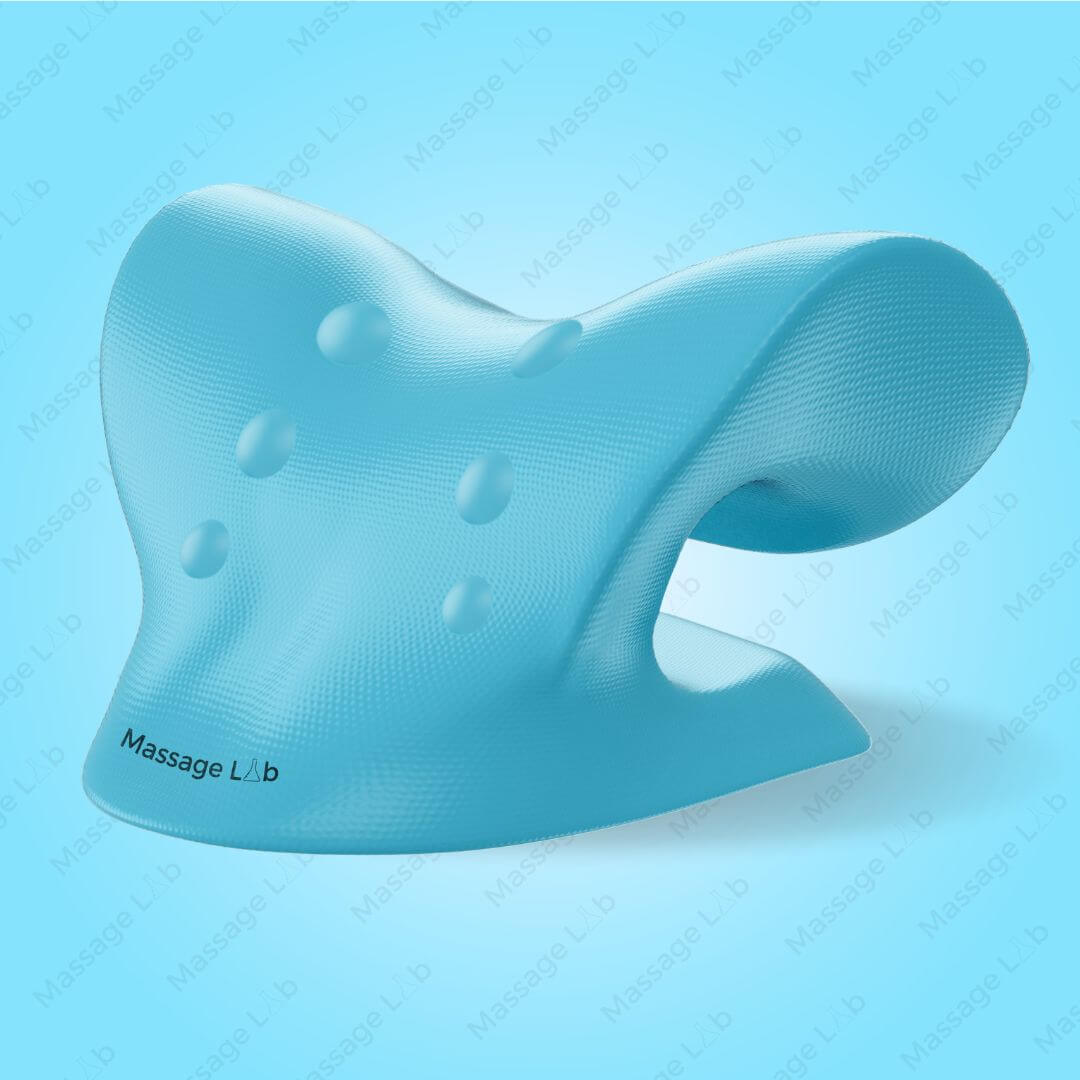Neck Cloud: Ergonomic Style for Maximum Convenience and Pain Decrease
Neck Cloud: Ergonomic Style for Maximum Convenience and Pain Decrease
Blog Article
The Impact of Stress on Neck Discomfort: Methods for Minimizing Tension and Pain
In today's busy globe, it's no key that stress and anxiety has actually come to be a prevalent aspect in the start and worsening of neck pain. Join us on a journey to untangle the influence of tension on neck discomfort and find reliable methods to alleviate pain and enhance overall top quality of life.
Recognizing Stress-Related Neck Discomfort
Stress-related neck pain can show up as tension, rigidity, or pain in the neck and shoulder area. The connection between stress and neck discomfort exists in the body's physiological response to stress and anxiety, which can result in muscular tissue stress and tightness in the neck muscles.

Identifying Common Tension Locations
One usual stress area is the neck, where tension frequently manifests physically. Tension migraines, tight neck muscles, and restricted variety of motion are typical symptoms of stress-related neck tension. Being conscious of these typical tension locations can help individuals acknowledge the physical signs of tension and take actions to resolve them before they intensify into chronic pain or discomfort.
Implementing Leisure Strategies
To efficiently handle stress-related tension in the body, applying relaxation strategies is important. Leisure techniques are important devices for reducing neck pain brought on by stress and anxiety. Deep breathing workouts can help calm the mind and loosen up stressful muscles in the neck and shoulders (neck cloud). Exercising mindfulness meditation can likewise be advantageous in alleviating tension and promoting leisure. Dynamic muscular tissue relaxation, where you systematically stressful and then kick back various muscular tissue groups, can launch built-up stress in the neck location. Furthermore, tasks like yoga and tai chi integrate both physical movement and leisure, making them efficient methods for decreasing anxiety and neck discomfort. Taking regular breaks throughout the day to stretch and unwind can protect against muscle mass tightness and stress from building up. By including these relaxation strategies into your daily routine, you can assist manage stress degrees, lower tension in the neck, and ease discomfort connected with stress-induced neck discomfort.
Including Self-Care Practices
Integrating self-care methods is crucial for maintaining total wellness and additional hints managing stress-related neck discomfort effectively. Participating in routine physical task, such as gentle stretching exercises or yoga, can aid alleviate stress in the neck and shoulders. Exercising excellent position throughout the day and taking regular breaks from extended resting or screen time can additionally protect against strain on the neck muscular tissues.
Furthermore, focusing on ample sleep and establishing a consistent sleep routine can contribute significantly to decreasing anxiety levels and advertising leisure. Creating a soothing bedtime routine, such as reviewing a publication or taking a warm bath, can aid prepare the mind and body for peaceful rest. Furthermore, keeping a well balanced diet plan abundant in nutrients and staying moistened can support total health and lower swelling that might intensify neck pain.
Integrating mindfulness methods, such as deep breathing workouts or reflection, can assist take care of anxiety and promote leisure. Taking time for oneself, involving in leisure activities, and establishing borders to safeguard individual time are likewise important facets of self-care that can add to lowering tension and alleviating neck discomfort.
Seeking Professional Aid
How can people properly resolve persistent neck pain that is impacting their everyday life and health? Looking for expert help can be an important step in managing and alleviating neck pain.
Chiropractic doctors specialize in back adjustment methods to improve placement and reduce stress in the neck area. Physical therapists provide targeted stretches and exercises to enhance muscles, enhance flexibility, and improve overall neck feature. Orthopedic experts can you could try here provide advanced clinical interventions such as injections or surgical choices for serious cases of neck discomfort.
Verdict

Stress-related neck pain can manifest as tension, stiffness, or discomfort in the neck and shoulder location. The connection in between tension and neck discomfort exists in the body's physical response to stress, which can result in muscle stress and tightness in the neck muscles. Tension migraines, rigid neck muscular tissues, and restricted range of activity are typical signs of stress-related neck stress. By including these leisure techniques into your daily regimen, you can aid take care of anxiety levels, reduce tension in the neck, and minimize pain associated with stress-induced neck pain.

Report this page